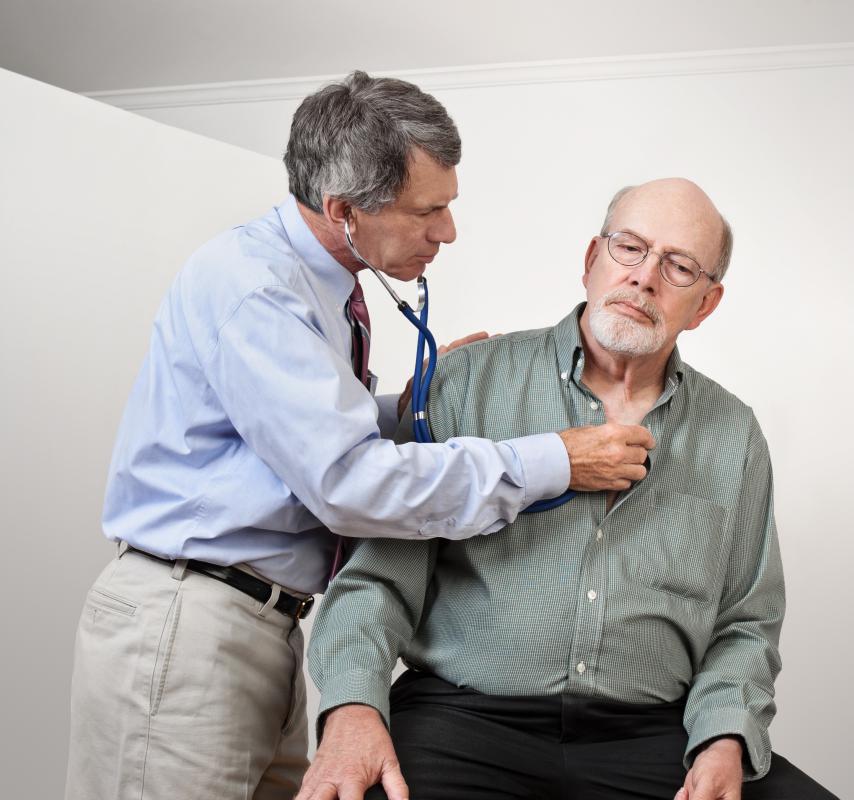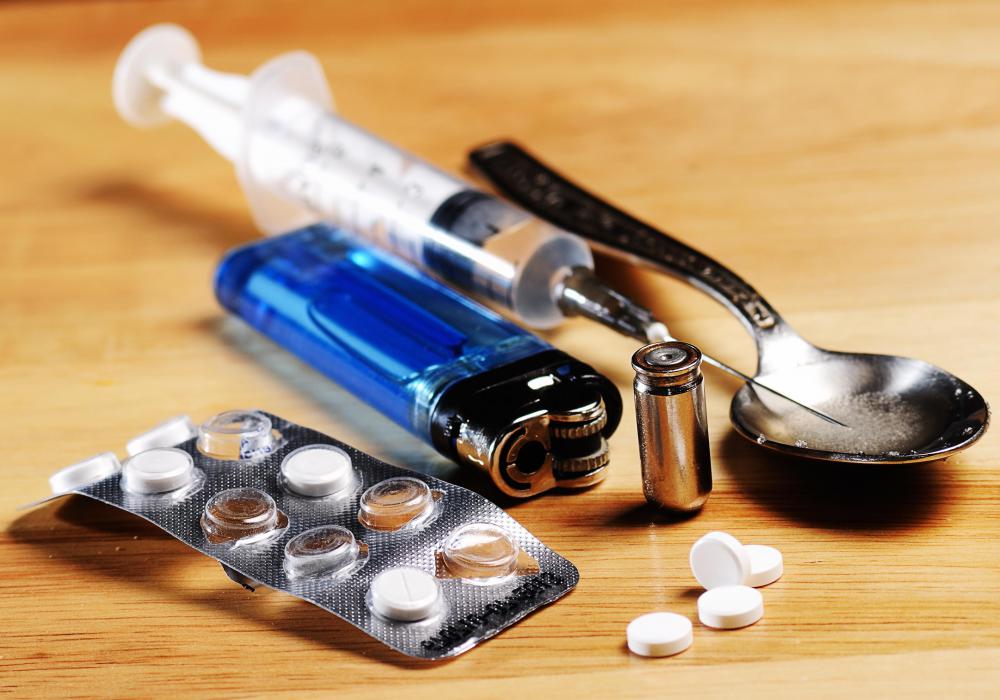At TheHealthBoard, we're committed to delivering accurate, trustworthy information. Our expert-authored content is rigorously fact-checked and sourced from credible authorities. Discover how we uphold the highest standards in providing you with reliable knowledge.
What is Arrhythmia?
An arrhythmia is a disruption in the regularity of the heartbeat. Arrhythmias are actually quite common; many people are living with an arrhythmia and they are totally unaware of it. In some cases, an arrhythmia may be more serious, requiring medical intervention and treatment. Since the heart is such an important organ, regular checkups should always include an assessment of heart function, because it is essential that the heart work properly. Various diagnostic tools such as electrocardiograms can be used to get a better picture of heart rhythms.
In normal people, the heart beats very steadily in a classic “lub-dub” pattern, reflecting the flow of blood through the chambers of the heart. In someone with an arrhythmia, the muscle contractions of the heart do not follow a normal pattern, with the heart beating too slowly, too quickly, or in an extremely irregular fashion, missing beats or spacing beats in a strange way. Sometimes, the patient may be aware that his or her heart beats irregularly; this can be distressing or irritating, depending on the type of arrhythmia.

When someone's heart beats too slowly, it is known as bradycardia. This condition is common in athletes, who have conditioned their hearts for hard activity. A heartbeat which is abnormally rapid is called a tachycardia. Other arrhythmias have different names; these two are most common and well known. Another type of arrhythmia, a fibrillation, is extremely serious, reflecting a quivering of the heart muscle, rather than a strong contraction. Fibrillation will result in death if it is not treated.

There are a number of causes for arrhythmias, including stress, congenital heart disease, drug use, and general aging. Diet, exercise, and other medical conditions may also have an impact on heart health. Some people notice that their hearts seem to beat irregularly during high stress events; this is a normal stress response, although it can be distracting. Other individuals experience random arrhythmias, such as heart palpitations which do not appear to be related to stress. These arrhythmias may indicate a more serious problem.

When an arrhythmia is diagnosed, the next step depends on the type of arrhythmia. For many people, nothing is done, although the patient may be encouraged to eat a heart healthy diet, or to be more aware of his or her heart functions, reporting abnormal events to a doctor. In other instances, medication may be prescribed to treat the arrhythmia. An extreme arrhythmia may be treated with an implanted medical device which shocks the heart to force it into a regular rhythm.
AS FEATURED ON:
AS FEATURED ON:
















Discussion Comments
I'm thirteen and my heart has always beat a little faster than usual, but after a few years, it's really started acting up. Once in a while my heart will skip a few beats, jump from normal to rapid, or just beat with an irregular rhythm for a few seconds, even when I'm not doing exercise.
I'm a bit worried and I've talked to my mother about seeing the doctor, but she doesn't seem to take it seriously. I can't help wondering if it's something serious?
My father had an arrhythmia, which eventually led the doctor to realize he needed heart surgery. Unfortunately, my dad left it too late and ended up passing away from not getting the surgery done in time.
He actually told me, before going in that he had noticed that there was a problem, but he had ignored it. He knew his heart was acting up and he had been having trouble breathing and other signs, but he was afraid of going to the doctor, so he didn't do anything about it.
Getting checked if there is something strange with your heart, like a weird flutter or whatever, is so important.
@Mor - Well, I wonder if it had any other consequences in his life though. I mean, if he was scared or something, would it make a difference that his heart beats too slow?
More people have a tachycardia arrhythmia, where their heart beats too fast. It can cause all kinds of problems, including a kind of panic attack which isn't very pleasant.
I always found it quite interesting how athletes have bradycardia like that. I read recently about one guy in particular, I can't remember his name, but he was an endurance athlete and would run extremely long distances, sometimes for whole months of just running, day after day.
He had a number of different biological attributes that helped him to survive, like the fact that his muscles didn't seem to suffer from that kind of stress like an ordinary person's might.
But he also had this incredible heartbeat that would not speed up. When they tested him, they did the usual test of trying to get him to exercise vigorously and it took ages for them to get it to the speed they wanted.
I didn't realize that would be classified as a cardiac arrhythmia. It seemed pretty awesome to me.
Post your comments